Xenon Arc Light Fastness Tester
Xenon Arc Light Fastness Tester is a laboratory instrument used to evaluate the color fastness of textiles and materials when exposed to sunlight or artificial light. It simulates full-spectrum sunlight using a xenon arc lamp, making it ideal for assessing how materials resist fading over time.
Purpose of Xenon Arc Light Fastness Tester:
To determine how well a fabric or material maintains its color and integrity under prolonged light exposure, especially for outdoor or light-sensitive applications.
Working Principle of Xenon Arc Light Fastness Tester :
A xenon arc lamp emits light similar to natural sunlight. Fabric samples are exposed under controlled temperature, humidity, and light intensity. The degree of fading is compared to standard blue wool scales to assign a light fastness rating.
Main Components Xenon Arc Light Fastness Tester :
– Xenon Arc Lamp: Simulates sunlight (UV, visible, and infrared).
– Sample Holder: Rotates samples for uniform exposure.
– Environmental Controls: Maintains specific temperature and humidity.
– Control Panel/Software: Sets test parameters (light, time, humidity, etc.).
– Filters: Control the light spectrum (e.g., daylight, window glass).
Applications:
– Textiles
– Automotive interiors
– Plastics, paints, and coatings
– Outdoor fabrics and furnishings
Benefits of Xenon Arc Light Fastness Tester:
- Realistic Sunlight Simulation – Accurately mimics full-spectrum natural sunlight, including UV, for reliable light fastness testing.
- Standard Compliance – Meets international standards like ISO 105-B02, AATCC TM16, and ASTM G155, ensuring globally accepted results.
- Improves Product Durability – Helps manufacturers assess and improve resistance to color fading, cracking, or degradation from light exposure.
- Versatile Applications – Suitable for testing textiles, plastics, paints, leather, and coatings.
- Controlled Test Conditions – Offers precise control over temperature, humidity, and light intensity, improving test consistency and repeatability.
- Supports Quality Assurance – Detects early failures in colorfastness, enabling better product design and material selection.
- Automated Operation – Programmable tests and automatic monitoring reduce operator involvement and errors.
- Accelerated Testing – Speeds up evaluation by simulating months or years of sun exposure in a few days or weeks.
Features of Xenon Arc Light Fastness Tester:
- Xenon Arc Lamp – Provides full-spectrum light (UV, visible, IR) to simulate natural sunlight accurately.
- Programmable Control System – Digital or touchscreen interface for setting test parameters like exposure time, temperature, humidity, and irradiance.
- Humidity and Temperature Control – Maintains precise environmental conditions inside the test chamber.
- Rotating Sample Carousel – Ensures uniform light exposure on all test specimens.
- Light Spectrum Filters- Adjustable filters simulate different light conditions (e.g., daylight, window glass, outdoor).
- Standards Compliance- Meets ISO, AATCC, ASTM, and other global test methods for light fastness.
- Automatic Irradiance Control – Maintains constant light intensity throughout testing, improving accuracy.
- Safety Features – Includes overheating protection, door interlock, and lamp monitoring system.
- Data Logging and Export – Some models offer USB or software integration for saving and analyzing test data.
- Durable and Insulated Chamber – Built with high-quality materials for stable testing and long-term use.
How to Use Xenon Arc Light Fastness Tester:
- Prepare the Samples
– Cut fabric or material into standard-size specimens.
– Label and condition samples (usually 24 hrs at 21°C, 65% RH).
- Mount the Samples – Attach samples onto holders or clips, placing them evenly on the rotating drum or carousel.
- Insert Blue Wool Standards- Include standard blue wool reference fabrics to compare light fastness.
- Set Test Parameters
– Use the control panel to set:
– Irradiance (e.g., 0.35 W/m² at 420 nm)
– Temperature and humidity
– Test duration (e.g., 24–72 hrs or more)
- Start the Test – Close the chamber door and begin the exposure cycle.
- Monitor Progress- System auto-adjusts irradiance and logs test conditions. Periodically check if needed.
- End and Remove Samples – After completion, stop the test and remove the samples and blue wool references.
- Evaluate Results – Compare the sample fading to the blue wool scale to assign a light fastness rating (1–8 scale).
Xenon Arc Light Fastness Tester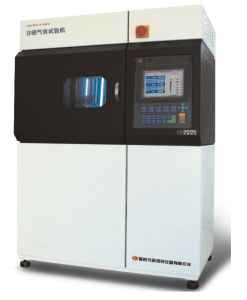
[Scope of application]
It is used for the light fastness and weather fastness test in the color fastness test. It
can also be used for the light fastness test and light fastness test of paints,
pigments, coatings, rubber, plastics, wood floors, paper and other materials. Aging
test.
Related Standards of Xenon Arc Light Fastness Tester
GB/T8427 (China National Standard Drafting Unit)
GB/T15102-2006 GB/T14576 GB/T15104-2006 GB/T8430 AATCC TM16 ISO105-B04
ISO105-B02 etc.
Instrument characteristics of Xenon Arc Light Fastness Tester
1. Digital setting of light intensity, real-time monitoring, and automatic adjustment
to meet the stability requirements of different standards for test light sources
(420nm can be switched; 300-800nm or 300-400nm band monitoring);
2. Standard Blackboard Thermometer (BST) and Blackboard Thermometer (BPT)
can be selected for use, and are tested at the same station (equal distance) as the
sample, which truly reflects the tested condition of the sample;
3. The measured data is processed by the CPU and displayed on the color screen in
the form of numbers, graphs, curves, etc., without stopping for observation;
4. Microchip’s 32-bit intelligent CPU, high-efficiency real-time control, to ensure
accurate reproduction of the same test environment;
5. 7-inch color screen display and control, multiple test monitoring modes
(animation, numbers, charts), convenient control, intuitive and clear;
6. All sample holders can be timed separately, and different samples can be tested
on the same machine, which is convenient for test monitoring and reduces
operating costs;
7. Rated 1500W long arc xenon lamp technology, high efficiency and energy saving,
real simulation of sunlight spectrum;
8. Industrial temperature control (refrigeration) system, rapid and stable
temperature adjustment in the test chamber;
9. Built-in self-circulation system and air filtration system, greatly reducing
environmental requirements;
10. European traceable spectrum analyzer, multi-measurement calibration;
11. Built-in network communication module, can customize the remote monitoring
function of mobile phone APP;
12. The instrument can be optionally equipped with thermal printout or data
export of test environment parameters;
13. The quality assurance that one test can run continuously for 1000 hours
[Technical Parameters]1. Temperature control range of test chamber: (20~50)℃; accuracy: ±2℃
2. Test chamber humidity control range: (15~95)%RH, accuracy: ±5%RH
3. Test time control range: 0~9999:59 (h:min); accuracy: ±1min
4. Irradiance control range:
(0.80~1.60)W/m2/420nm Accuracy: ±0.02W/m2/420nm
(25-60)W/m2/300-400nm Accuracy: ±2W/m2/420nm
(300-650)W/m2/300-800nm Accuracy: ±10W/m2/420nm
Digital setting, automatic compensation
Xenon light source:
a. Rated power of xenon arc lamp: 1.5kW;
b. Color temperature: 5500K~6500K;
6. Sample:
a. Rotation speed of sample holder: 5rpm
b. Diameter of sample holder distribution: 286mm
c. The size and number of sample holders that can be installed:
GB standards AATCC(Optional)
Specimen clamp size
203mm×
48mm
220mm×92mm
Maximum sample size
135mm×
45mm
150mm×90mm
Maximum exposure area
118mm×
33mm
130mm×50mm
Maximum number of
pieces
13
6
d. Timing of each sample holder separately: range: 0~9999:59 (h: min); accuracy: ±
1min
e. Sample thickness: ≤3mm
7. Standard Blackboard Thermometer (BST) range:
(20~75)℃; Resolution: 0.1℃, Accuracy: ±2℃
Or optional blackboard temperature (BPT) range:
(25~80)℃, resolution: 0.1℃, accuracy: ±2℃
8.7 inch touch screen operation
9. Stand-alone with thermal printer (optional)
10. Power supply: AC220V±10% 50Hz 3.5kW
11. Dimensions: 1130mm×760mm×1895mm
12.Weight: about 380kg
(Note: The equipment test conforms to the standard based on the above basic
configuration and parameters. If it involves other standards and the test exceeds
the above technical content, please contact our company for special
customization)
(Note: The equipment test conforms to the standard based on the above basic
configuration and parameters. If it involves other standards and the test exceeds
the above technical content, please contact our company for special
customization)
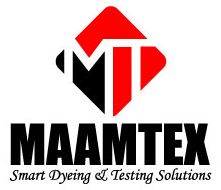

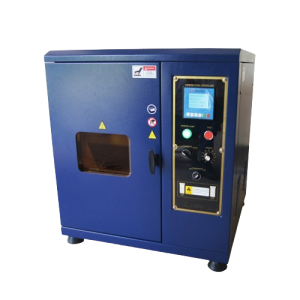
 Products
Products
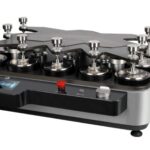 Martindale abrasion tester Updated
Martindale abrasion tester Updated
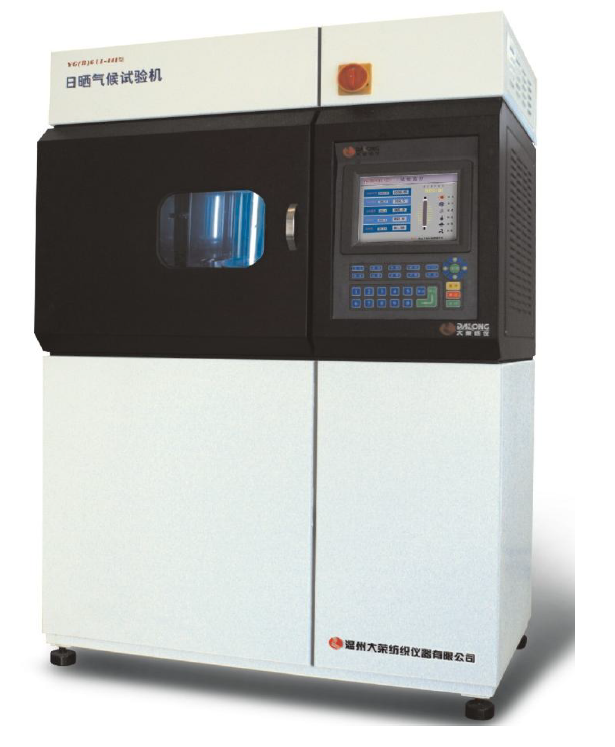
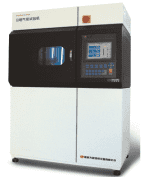
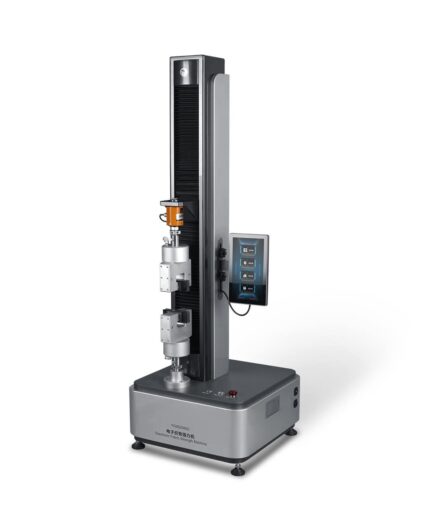
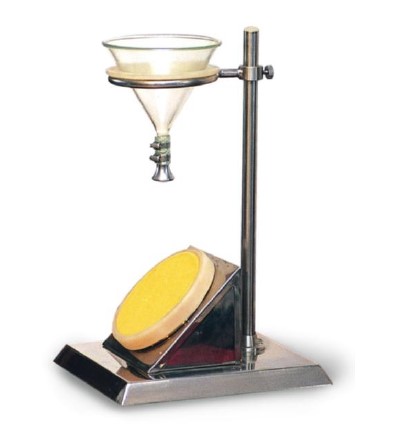

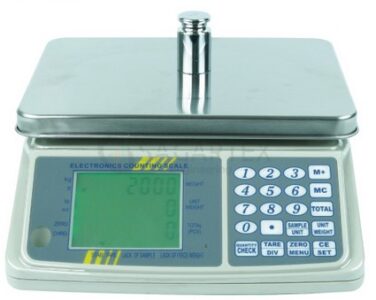
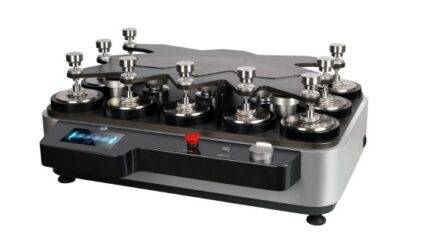
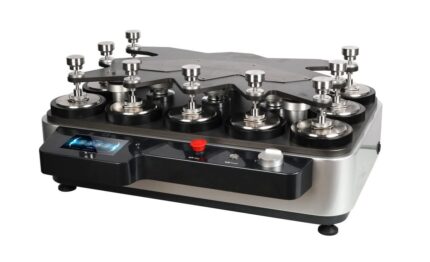
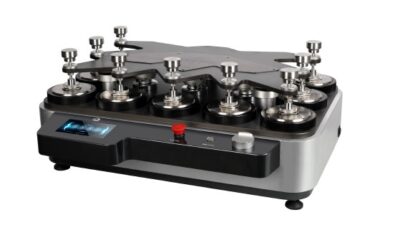
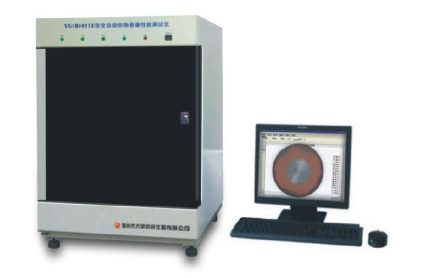
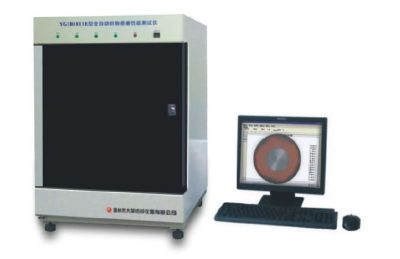
 It is used for testing dynamic and static drape properties
(drape coefficient, shape change rate, surface ripple and drape uniformity, etc.)
of various fabrics.
Related standards GB/T23329 FZ/01045 BS5058 etc.
Instrument characteristics
1. CCD imaging, dynamic and static image processing.
2. A variety of charts and data statistics, analysis, storage, output
3. No need to replace background color, can test all kinds of color samples.
4. Work mode:Microcomputer control, CCD imaging, automatic processing of images and data automatically.
Technical parameters
1. Communication interface: RS232, USB
2. Image sensor: CCD sensor.
3. Static (dynamic) state draping coefficient: 0 ~ 100% + 2
4. Drapability uniformity: 0 ~ 100% + 2
5. The rate of morphological change is 0 to 100% + 2.
6. Surface waviness error: + 1
It is used for testing dynamic and static drape properties
(drape coefficient, shape change rate, surface ripple and drape uniformity, etc.)
of various fabrics.
Related standards GB/T23329 FZ/01045 BS5058 etc.
Instrument characteristics
1. CCD imaging, dynamic and static image processing.
2. A variety of charts and data statistics, analysis, storage, output
3. No need to replace background color, can test all kinds of color samples.
4. Work mode:Microcomputer control, CCD imaging, automatic processing of images and data automatically.
Technical parameters
1. Communication interface: RS232, USB
2. Image sensor: CCD sensor.
3. Static (dynamic) state draping coefficient: 0 ~ 100% + 2
4. Drapability uniformity: 0 ~ 100% + 2
5. The rate of morphological change is 0 to 100% + 2.
6. Surface waviness error: + 1 
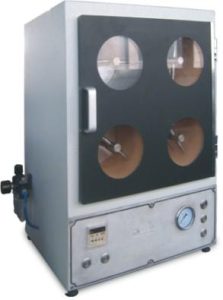
 [Scope of application]:
It is used to test the fuzzing and pilling
performance of the fabric under the condition of
free rolling and friction in the drum.
[Related standards]:
GB/T4802.4 (Standard Drafting Unit)
ISO12945.3, ASTM D3512, ASTM D1375, DIN 53867, ISO 12945-3, JIS L1076, etc.
[Technical parameter]:
1. Number of boxes: 4
2. Roller specifications: diameter (146±1.0) mm, depth (152.4±1.0) mm;
3. Lining material: polychloroprene lining thickness (3.2±0.4) mm. , Hardness (60~70)
IRHD;
4. Impeller specifications: φ12.7 mm×120.6 mm;
5. Plastic blade specifications: 10 mm×65 mm;
6. Rotation speed: 1~2400 rpm can be set freely
7. Working pressure: 14kPa~21kPa;
8. Time counting: (1~999) min.
9. Power supply: AC220V±10% 50Hz 80W
10. Appearance: (480×400×680)mm
11. Weight: 40kg
[Standard accessories]
Items and specifications Qty. Note
Fuse 2 3A
Main machine 1
Power cable 1
Air tube 1 Φ8mm
Grey cotton sliver 4
Cork lining 4
Rating sample photo 1
White glue 1
[Scope of application]:
It is used to test the fuzzing and pilling
performance of the fabric under the condition of
free rolling and friction in the drum.
[Related standards]:
GB/T4802.4 (Standard Drafting Unit)
ISO12945.3, ASTM D3512, ASTM D1375, DIN 53867, ISO 12945-3, JIS L1076, etc.
[Technical parameter]:
1. Number of boxes: 4
2. Roller specifications: diameter (146±1.0) mm, depth (152.4±1.0) mm;
3. Lining material: polychloroprene lining thickness (3.2±0.4) mm. , Hardness (60~70)
IRHD;
4. Impeller specifications: φ12.7 mm×120.6 mm;
5. Plastic blade specifications: 10 mm×65 mm;
6. Rotation speed: 1~2400 rpm can be set freely
7. Working pressure: 14kPa~21kPa;
8. Time counting: (1~999) min.
9. Power supply: AC220V±10% 50Hz 80W
10. Appearance: (480×400×680)mm
11. Weight: 40kg
[Standard accessories]
Items and specifications Qty. Note
Fuse 2 3A
Main machine 1
Power cable 1
Air tube 1 Φ8mm
Grey cotton sliver 4
Cork lining 4
Rating sample photo 1
White glue 1

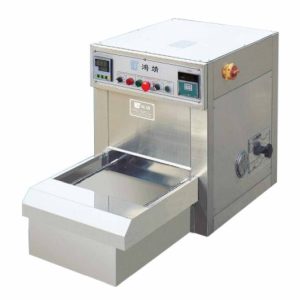
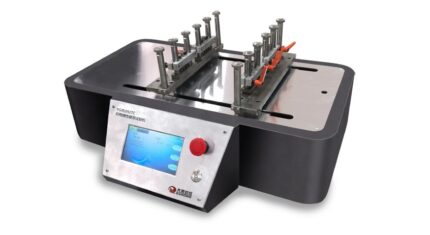
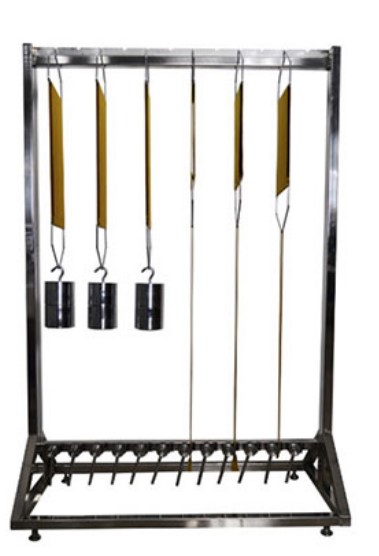
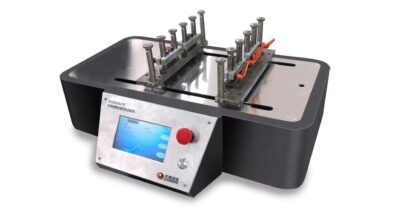

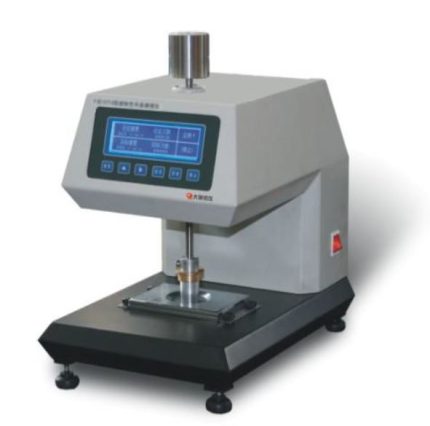
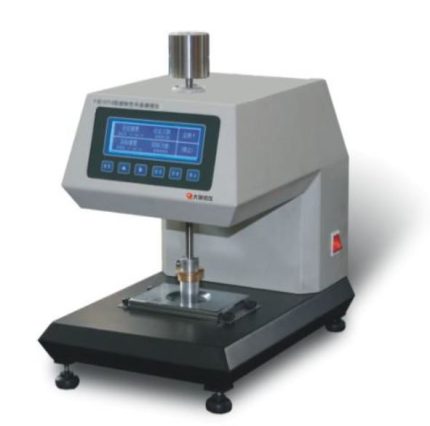

 It is used to change the color fastness of the textile,
printing and dyeing, printing and other products after a specific track friction.
[Related standards]
GB / T29865 AATCC116 ISO105-X16, etc.
[Instrument characteristics]:
1.Single-chip control, speed can be set freely
2.Imported motor, linear guide, low noise, suitable for long time work
3. Liquid crystal display, film panel
4. Freely set the number of friction, can count up and down,
and automatically stop the alarm when the set value is reached
[Technical Parameters]:
1. Friction head diameter: 16mm 25mm
2. Vertical pressure: 11.1N
3. Working mode: 405 ° clockwise and 405 ° counterclockwise
4. Speed range: constant 60 rpm, LCD display, thin mold panel
5. Counting range: 0-99999 times
6. Power supply: AC 220V 50Hz 80W
7. Weight: 20KG
8. Volume: L420mm × W260mm × H430mm
It is used to change the color fastness of the textile,
printing and dyeing, printing and other products after a specific track friction.
[Related standards]
GB / T29865 AATCC116 ISO105-X16, etc.
[Instrument characteristics]:
1.Single-chip control, speed can be set freely
2.Imported motor, linear guide, low noise, suitable for long time work
3. Liquid crystal display, film panel
4. Freely set the number of friction, can count up and down,
and automatically stop the alarm when the set value is reached
[Technical Parameters]:
1. Friction head diameter: 16mm 25mm
2. Vertical pressure: 11.1N
3. Working mode: 405 ° clockwise and 405 ° counterclockwise
4. Speed range: constant 60 rpm, LCD display, thin mold panel
5. Counting range: 0-99999 times
6. Power supply: AC 220V 50Hz 80W
7. Weight: 20KG
8. Volume: L420mm × W260mm × H430mm